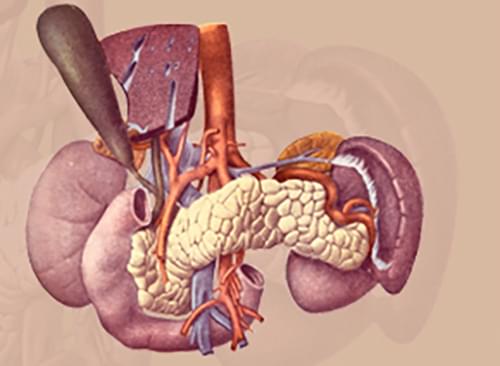😃 circa 2017.
George Church and colleagues use gene drive to target fungal pathogen resistance.

Could one of Earth’s most intelligent species be an alien, ‘seeded’ on the planet by an interstellar genetic code? Scientists speculate that the clue might be found in the ancient precursor to life: RNA. Image top of page: Shutterstock License Related Articles Octopus & the Origin of Consciousness (Planet Earth Report) Unfathomable […].
Lex Fridman Podcast full episode: https://www.youtube.com/watch?v=jhKZIq3SlYE
Please support this podcast by checking out our sponsors:
- Onnit: https://lexfridman.com/onnit to get up to 10% off.
- Clear: https://clearme.com/lexpod and use code LexPod to get 2 months free.
- National Instruments (NI): https://www.ni.com/perspectives.
- SimpliSafe: https://simplisafe.com/lex and use code LEX to get a free security camera.
- Linode: https://linode.com/lex to get $100 free credit.
GUEST BIO:
David Sinclair is a geneticist at Harvard and author of Lifespan.
PODCAST INFO:
Podcast website: https://lexfridman.com/podcast.
Apple Podcasts: https://apple.co/2lwqZIr.
Spotify: https://spoti.fi/2nEwCF8
RSS: https://lexfridman.com/feed/podcast/
Full episodes playlist: https://www.youtube.com/playlist?list=PLrAXtmErZgOdP_8GztsuKi9nrraNbKKp4
Clips playlist: https://www.youtube.com/playlist?list=PLrAXtmErZgOeciFP3CBCIEElOJeitOr41
SOCIAL:
- Twitter: https://twitter.com/lexfridman.
- LinkedIn: https://www.linkedin.com/in/lexfridman.
- Facebook: https://www.facebook.com/lexfridman.
- Instagram: https://www.instagram.com/lexfridman.
- Medium: https://medium.com/@lexfridman.
- Reddit: https://reddit.com/r/lexfridman.
- Support on Patreon: https://www.patreon.com/lexfridman

Church points to factors that helped make such a success of three of the top COVID-19 vaccine technologies. For one thing, they all used gene therapy technologies, and each was a new method relative to the past and to each other. For instance, the AstraZeneca vaccine was based on an adenovirus capsid containing double-stranded DNA as opposed to an adeno-associated virus (AAV) of the Johnson & Johnson/Janssen vaccine, while the Moderna and Pfizer/BioNTech vaccines were based on single-stranded mRNA inside lipid nanoparticles.
“Implementation science is the unsung handmaiden of biomedical discovery!”
Secondly, each of them was approved by the FDA 10 times faster than the vast majority of therapeutic products, and finally, the cost per vaccine has been as low as $2 per dose for the United Nations’ COVAX global access program. That’s about a million times cheaper than Zolgensma, he says, referring to the AAV gene therapy medication used to treat spinal muscular atrophy. So since “any one of these could spark a revolution,” according to Church, imagine what could happen in the next 12 months if all four factors pertain again?

After only 23 minutes, he could even pee again!
Researchers at the University of Alabama at Birmingham transplanted kidneys derived from genetically modified pigs into a brain-dead person last year as part of human preclinical trials, Science Daily reported.
Organ transplant from another species recently made big news, a heart from a genetically modified pig was transplanted into a human whose heart condition left with no other option. While the transplant was authorized under compassionate grounds by the U.S. Food and Drug Administration, the idea is catching up with the provider of the organ, Revivicor, already having completed two such trials in dead patients.
As Science Daily explains, genetically modified kidneys have been extensively tested in non-human primate recipients but testing them in humans before clinical trials can also provide important information about the safety and efficacy of the transplanted organs.
Full Story:
The shortage of kidneys is acute and calls for a radical solution to save human lives. Genetically modified pig kidneys could be the answer.

The latest episode of the Huberman Lab Podcast is all about the aging process and how to slow, halt or reverse it. My guest is Dr. David Sinclair from Harvard Medical School.
We discuss:
• Epigenetics.
• Fasting, breaking fasts.
• Nutrition, artificial sweeteners.
• How puberty impacts aging.
• Resveratrol, caffeine, electrolytes.
• NAD, NMN, Metformin, Berberine.
• Specific supplementation protocols.

Genetically modified crops have a bad rep. How could something so unnatural be good for us?
Well, we finally get to hear from the plants themselves. New evidence shows that plants have been genetically modifying themselves — and the process, called lateral gene transfer, could lead to new plants that are resilient to climate change.
The research: We all know that genes are transferred from parent to offspring. The same is true for all species, including plants. Some bacteria can swap genes with each other, but more complex life (usually) stays in its lane.
The idea that our genes are our fate” is dead. Exciting new discoveries in the field of epigenetics have proven that our lifestyle and environment can turn off and on many of the genes that control our health and wellbeing. Simple things like where we live, what we eat, pollution, stress, and exercise all impact which genes are silenced and expressed throughout our lives.
Research has shown that that the current dramatic rise in obesity, heart disease, diabetes and Alzheimer’s all have epigenetic mechanisms at play. Not only that but many epigenetic changes are actually passed to future generations: your grandmother’s dietary deficits may have caused your diabetes. Your father’s smoking may have turned on your marker for obesity or ADHD. Three generations later the descendants of holocaust survivors are still suffering stress disorders.
The recognition that environment, not genetics, is the primary driver of human health and disease carries with it a strong message of personal empowerment and responsibility. We are no longer powerless in the high stakes game of our own health. We can now play an active role in our genetic destiny.
Decoding Life: The Epigenetics Revolution is a one-hour documentary that uncovers the latest findings in the game-changing field of epigenetics. We meet the world’s top epigenetic experts, uncover the latest research into how epigenetics can be used to treat some of society’s most dire health crises such as cancer, heart disease, obesity, and dementia.
Find us on:
Facebook: https://www.facebook.com/SparkDocs/
Instagram: https://www.instagram.com/spark_channel/
Content licensed from Espresso to Little Dot Studios.

Cardiff University study is ‘major step forward’ in hunt for developmental origins of schizophrenia and other psychiatric disorders.
Scientists from Cardiff University have discovered new links between the breakdown in brain cell development and the risk of schizophrenia and other psychiatric disorders.
Genetic risk factors are known to disrupt brain development in a number of these disorders, but little is known about which aspects of this process are affected.

Opinions: Give your opinions in the comments section.
3D printed lab meat, and plant based meats will be more widespread in our future. Would you eat stem cell 3D printed lab meat or plant based meat? Why or why not? What are the differences between natural vs unnatural. Growing up in Texas I know most Texans frown on it, as BBQ is a religion. Is 3D printing meat sustainable\.
Whether it comes from a plant or the cells of an animal, it’s becoming increasingly clear that the meat of the future will probably not be coming from the flesh of slaughtered animals. Instead, whether made from plants or cells, it will be formed into ‘meat’ by a 3D printer. In September of 2021, a Japanese team of researchers at the University of Osaka announced that they had 3D printed Wagyu beef. Beef connoisseurs will recognize the name; Wagyu beef is prized (and suitably priced) for its flavor and fat marbling. Legends abound about the cows such beef derives from, how they are allegedly coddled and massaged, fed a special diet that includes beer — but much of those tales are either exaggerated or pure urban legend. As Joe Heitzeberg, the co-founder and CEO of Crowd Cow explains, There are four breeds native to Japan. Of those four breeds, one of the breeds is genetically unique. It has a genetic predisposition to create this crazy marbling of fat on the inside of muscle tissue. No other livestock does that. The researchers at the University of Osaka used two different types of stem cells from Wagyu cows to create cultured meat, growing living animal cells onto some type of matrix where they are then incubated and grown into animal tissue that has never been part of a living animal. There are currently no reports on the taste of the cultured Wagyu beef but we can assume it’s ‘good’ and given a little time, the technology should be able to produce excellent Wagyu cultured meat — at what price, however, is another big question mark. But there’s another simpler solution that could be a better meat replacement than cultured meat, as even meat grown from stem cells still contains cholesterol and some of the negative health concerns associated with animal protein. Plant-based imitation meat is also being created with 3D printers, and the results are surprising even hardcore meat lovers.
In November 2021, the UK’s Guardian newspaper highlighted the 3D steak produced by Israeli startup Redefine Meat after celebrity chef Marco Pierre White invited chefs, investors connoisseurs, and former winners of the MasterChef cooking show to taste it. This vegan 3D steak made with a 3D printer has a secret formula, but according to the Guardian, it includes soy, pea protein, and other vegetables such as beetroot, chickpeas, and coconut fat. But the reason it’s winning over meat lovers is the unique idea of printing it in layers. With a layer of ‘alternative fat’ made from plant-based materials, and then a layer of ‘alternative muscle’ also made from plants, the imitation meat no longer has a single texture — but like real meat — contains different flavors and textures in different areas. According to the experts gathered by celebrity Chef White, this ‘alt-meat’ is by far the closest synthetic approximation ever.